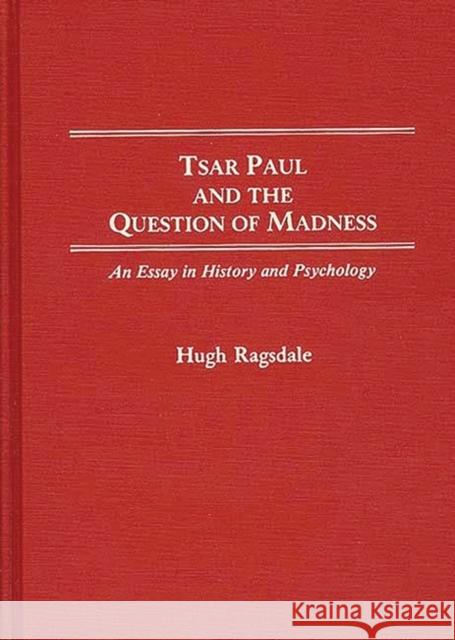Tsar Paul and the Question of Madness: An Essay in History and Psychology » książka
Tsar Paul and the Question of Madness: An Essay in History and Psychology
ISBN-13: 9780313266089 / Angielski / Twarda / 1988 / 284 str.
Drawing on archival studies, revisionist historians have taken issue with the traditional view that Tsar Paul I was mad and was assassinated because of the clear danger he posed to the state. Professor Ragsdale contends that the question of Paul's mental condition is not as simple as either his detractors or modern apologists suppose. In the first full-length study to be published outside Russia, the author places the subject in a wholly new perspective and offers some trenchant criticisms of traditional psychohistorical methods.He first describes the development of the personality of the Grand Prince in light of the conflicts between the European Enlightenment values that influenced his formal education and the social and political realities of eighteenth-century Russia. Professor Ragsdale next examines Paul's reign and the events surrounding his assassination, particularly the evidence suggesting that the conspirators planned beforehand to defame the Tsar's reputation as a means of justifying the deed. The next two chapters compare Paul's thinking and policies with those of other absolute sovereigns of the time and look at how mental illness was defined and treated in other instances of royal madness. The final chapter explores the question of the Tsar's mental condition in terms of twentieth-century psychological and psychiatric theory. A significant scholarly contribution, this book sheds light on an old controversy and provides some valuable new insights on the uses of psychology and psychiatry in the study of history.











